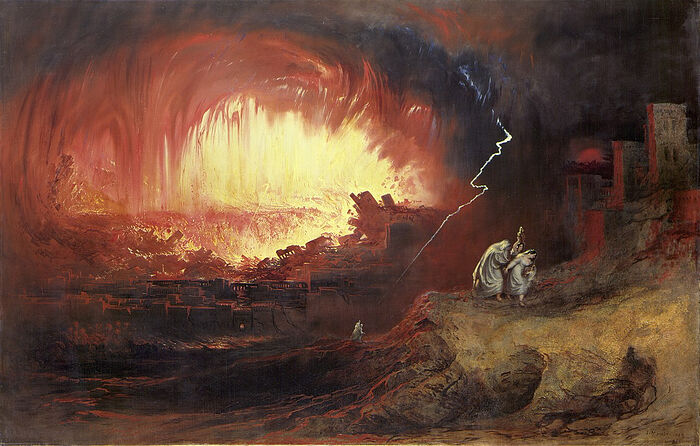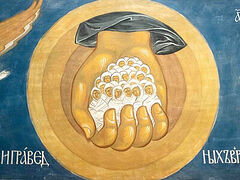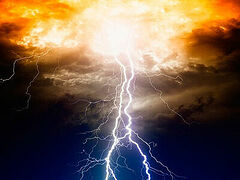 The Destruction of Sodom and Gomorrah. Artist: John Martin
The Destruction of Sodom and Gomorrah. Artist: John Martin
Christ is in our midst, my dear readers!
Today we often hear people talking about the end of the world again. We sense some eschatological events looming in the air. I think the apostles and the first Christian community in Jerusalem felt the same way. They were so sure that the Second Coming of Christ was about to happen that they sold their possessions, their lands—everything they had, and handed it over to the apostles. The early Christians, gathering together, spent time in fasting and prayer, waiting for the Lord to come down again from Heaven.
If we look at the entire history of humanity, we probably won’t find a time when there weren’t signs of the imminent end of the world. There have always been wars, famines, epidemics, diseases, the waning of faith, and so on. The same is happening now. Christianity is degenerating, and Christians themselves have ceased to be the salt of the earth. Countries for which the Gospel faith was a cultural and state-forming factor have been de-Christianized. Today, people do not see the saints or the devout as examples to emulate, but instead, the stars of the stage and screen. Politicians have erected an idol out of the golden calf, before which they themselves dance and pull everyone around them into this dance. In times like these, the Lord always sobers people with sorrows and disasters. But when people come to their senses, they are granted an extension of life. Nineveh, as we know from the Old Testament, was destined to perish, but repentance changed God’s intention.
Not long ago, during the Second World War, people recognized their sinfulness and feared God’s judgment, and so came church in such large numbers that the churches were overcrowded. Today, despite the serious calamities we are experiencing, there is no repentance. On the contrary, people are becoming more and more hard-hearted. All this indicates that sorrows will increase, because God will fight to the end for the salvation of human souls.
Where this will lead and how it will end, I do not know. I am sure only of one thing—the fate of our world depends on our faith and repentance. It is also necessary to understand that the end of the world will be not only universal, but also personal. We may not live to see the global end, but we will definitely reach the end of our own life, which will be the end of the world for us. We need to prepare for this all our life, because our eternal fate will be determined not by how others lived, but by how we ourselves lived.



